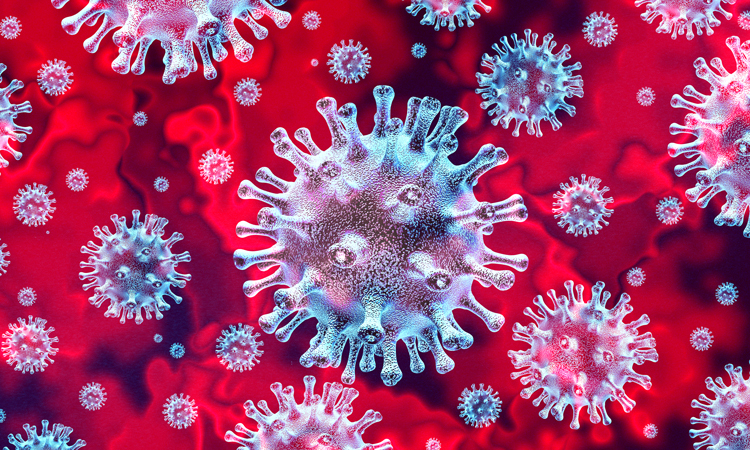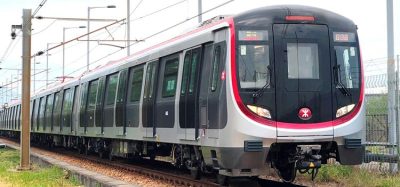UIC releases joint statement on continuity of passenger transport during COVID-19 pandemic
Posted: 9 April 2020 | Global Railway Review | No comments yet
The joint statement highlights the importance of the transportation sector and suggests best practice measures to ensure its continuity amidst COVID-19.


The International Union of Railways (UIC) has issued a joint statement with the International Association of Public Transport (UITP), United Cities and Local Governments (UCLG) and the International Transport Workers’ Federation (ITF) calling for the continuity of public transport and local mobility services to be ensured during the COVID-19 pandemic.
The statement begins: “During this COVID-19 crisis, ensuring the continuity of public transport and local mobility services is essential for society and the economy, especially for the many individuals who depend on a well-functioning transport system and must travel to execute their essential daily functions.”
Continuing, the statement emphasises the importance of communication and collaboration, as well as the importance of the transport sector as a whole, during such an uncertain time: “The public transport sector is impressive by its strength of community, and during times of crisis we must all stand together to advocate for sustainable urban mobility. Involving trade unions at an early stage in preparations and decision-making contributes to a greater understanding and collaboration with the workforce. Trade unions are an important source of knowledge and information. Similarly, local staff have a vital role to play by their tireless work at the frontline to ensure the functioning of public services.”
It goes on to highlight the importance of transportation in ensuring the continued movement of travellers who are required on the front line of the battle against the virus: “Transport and local mobility service is vital in order to keep key workers moving, and should be arranged so that public transport workers and passengers can travel safely. It is equally vital to maintain connection with intercity services within stations.”
As more transportation workers are lost to illness and self-isolation, the trade unions have drawn attention to how “public transport authorities, operators and local mobility providers are committed to complying with the health and safety recommendations and requirements set by their national authorities and the [World Health Organization] (WHO)”, but that it is vital for transportation employees to be supplied with Personal Protective Equipment (PPE) so that their health and safety, as well as the passengers’, remains protected.
Though it is not yet possible to know what the social, economic and financial impact the COVID-19 pandemic will have on urban and metropolitan mobility, the statement stressed the impact that is already being experienced as a result of the additional cleaning and social distancing measures that are required, as well as shifts in operations and declines in passenger numbers.
The statement outlines: “In order to limit these social, economic and financial consequences, exceptional measures will need to be adopted by governments. These measures, including financial support, need to be deployed very rapidly to public transport networks in order to ensure the continuity of services during the crisis and to swiftly resume regular operations once COVID-19 is under control. In countries where public transport operators solely rely on passenger revenues, their sheer survival in the short term is at stake.”
Within the statement, good practice measures were suggested to ensure continuity of services and limit the social, economic and financial consequences for the various stakeholders in the passenger transport sector:
- Ensure that all workers receive the latest and most accurate information about COVID-19, including ways to limit/avoid transmission
- Provide staff, in all occupational groups, with adequate PPE, including gloves, masks and hand sanitising products and other appropriate means to limit the spread of the virus, taking into account the availability of the local facilities
- Regular deep cleaning and disinfection of public transport vehicles/workplaces/stations and assets touched by public transport users (such as ticketing devices, poles, seats etc.) and make available disinfectant dispensers for passengers
- Limit the interactions of drivers and other occupations with passengers (for example no cash ticket sales onboard, allowing rear-door boarding only) in line with social distancing standards
- Adapt the level of service according to the reduction of travel demand to ensure service continuity and to comply with decisions taken by public authorities (e.g. night services and school services are suspended in some cities, some networks are following weekend or school holidays timetables as agreed with trade unions)
- Provide dedicated services to healthcare personnel and any other category of personnel falling under essential services.
The statement concluded by thanking all transportation employees for their resilience during a time where business-as-usual is no longer the case: “We thank all of the public transport workers, who are our ‘Guardians of Mobility’, for professionally fulfilling their duties and providing a public service. It’s important that we all remain committed to advocating for public transport as a vital public service during these unprecedented times.”








